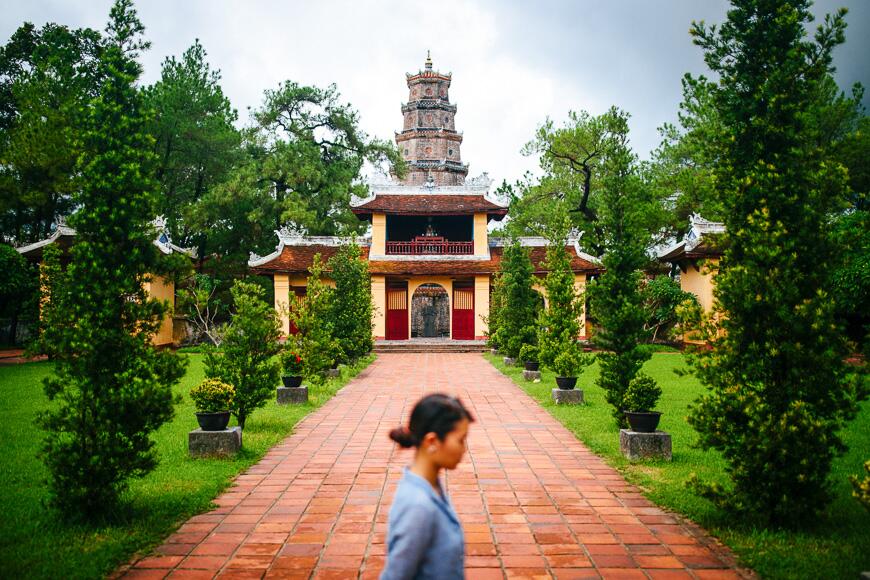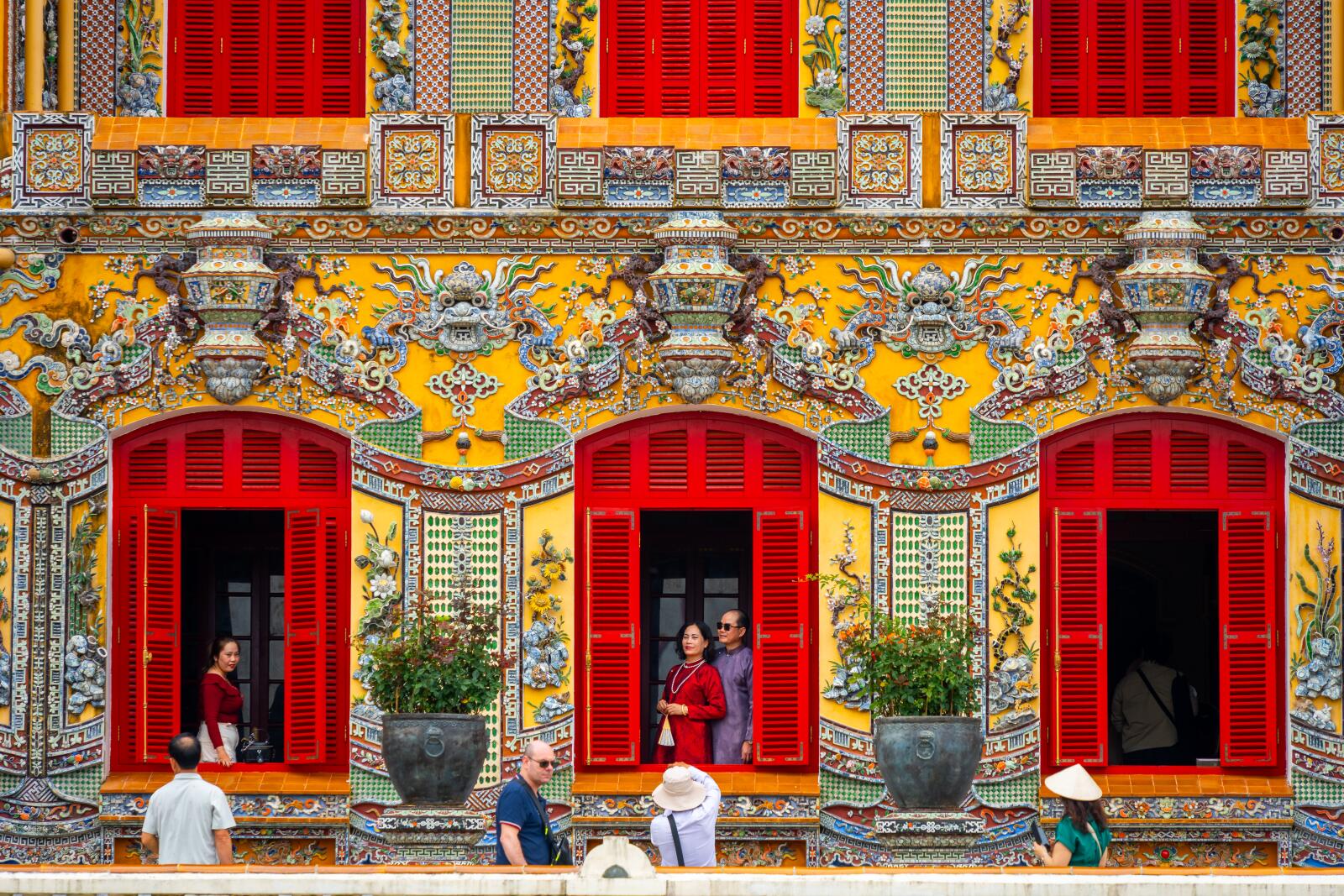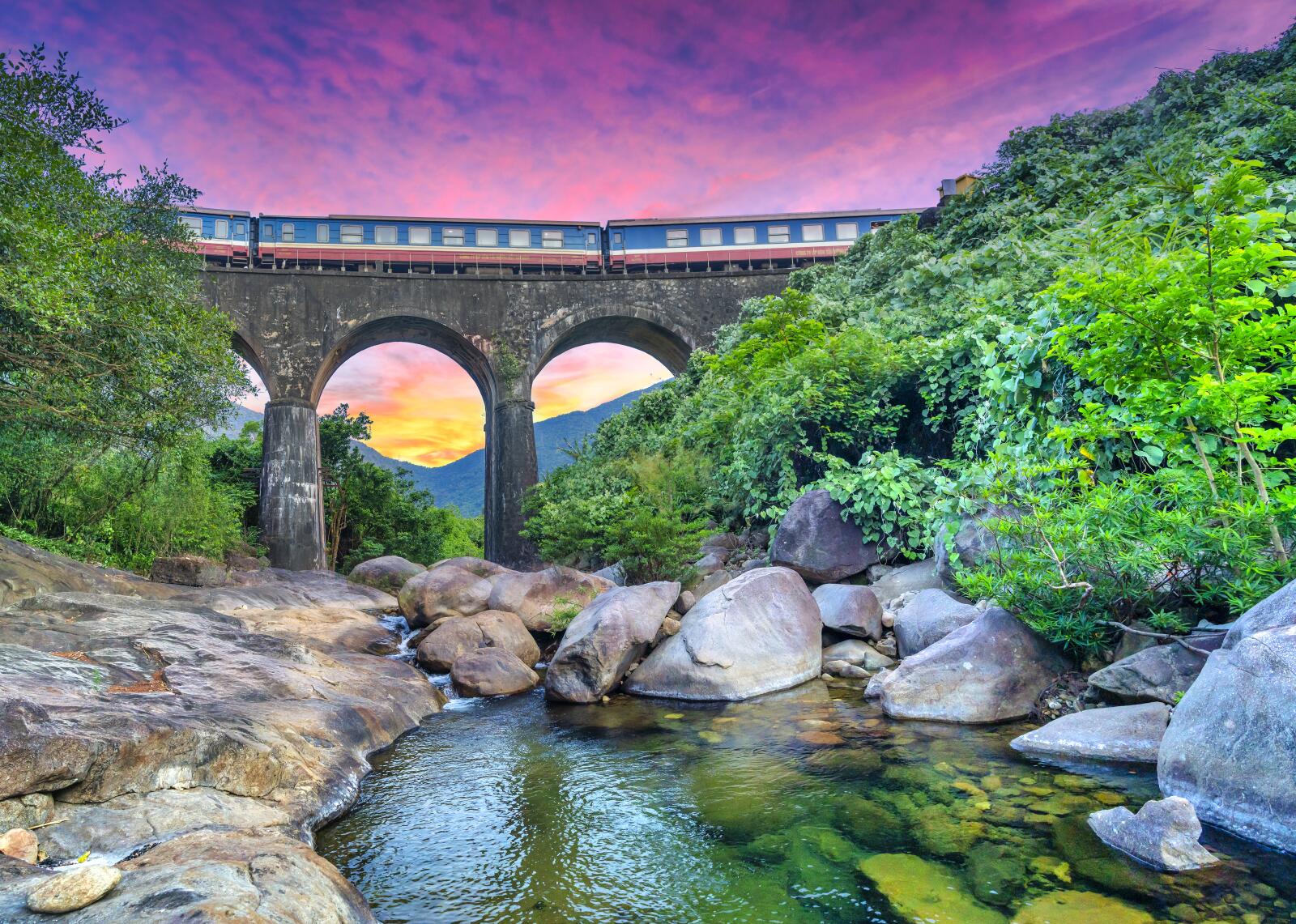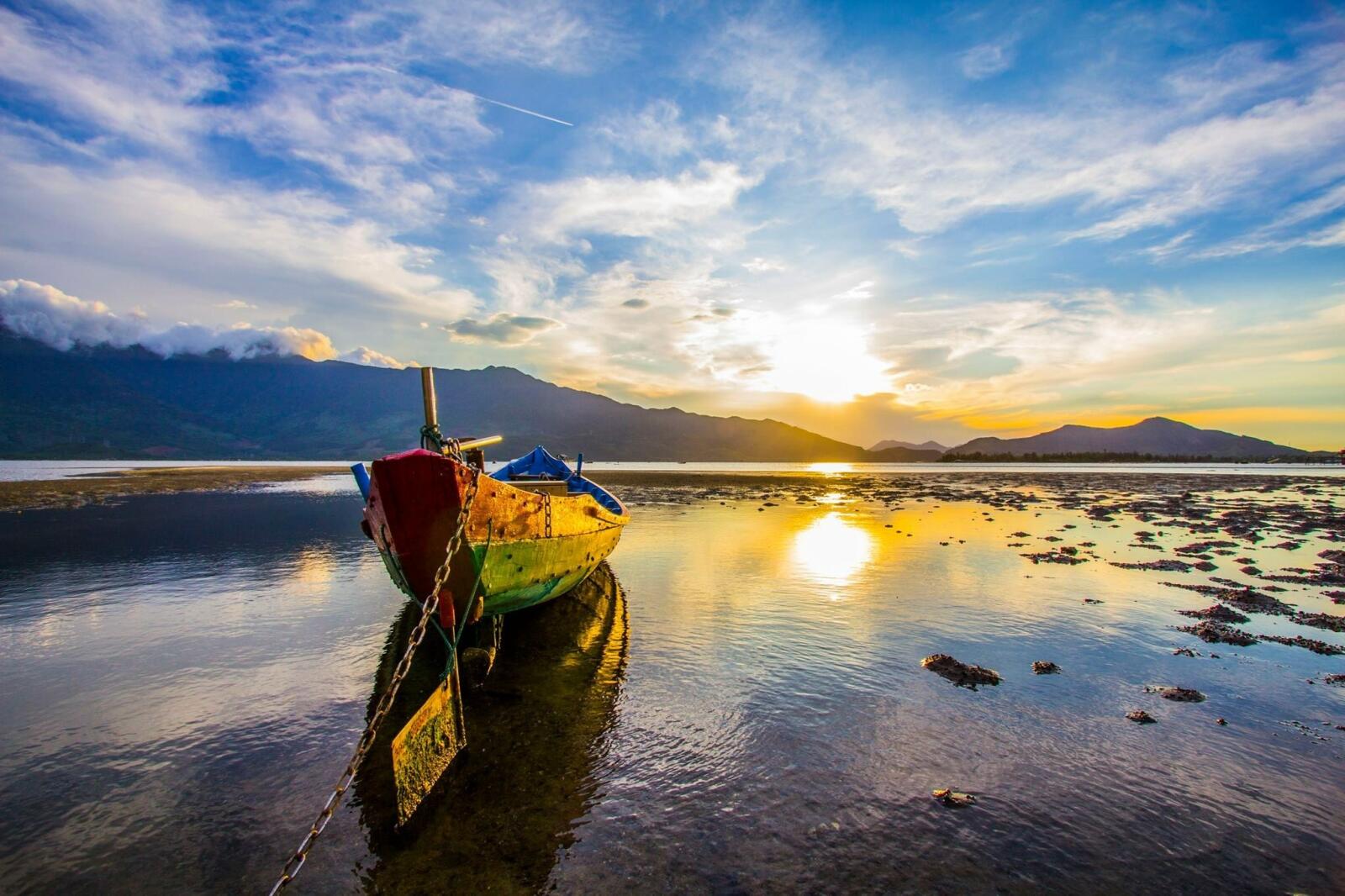Hue Holidays & Travel Guide
Hue, the former imperial capital of Vietnam, is a city where history feels alive at every turn. Recognised as a UNESCO World Heritage Site as part of the Complex of Hue Monuments, this central Vietnamese city preserves the royal architecture, tombs, and pagodas of the Nguyen Dynasty (1802-1945). Along the banks of the Perfume River and framed by lush hills, emperors built their magnificent capital, leaving behind a legacy of palaces, temples, and gardens that still inspire awe today.
But Hue is more than its imperial past. Compared to Vietnam's bigger cities, it has a slower, more contemplative pace. Wander quiet lanes lined with mossy pagodas and elegant garden houses, admire graceful art deco mansions and French colonial relics, or browse bustling markets full of colour and flavour. With its refined cuisine, gentle riverfront setting, and deep cultural traditions, Hue is the perfect place to savour both history and atmosphere.

What Makes Hue Unique?
Imperial City (Citadel)
Step into Vietnam's imperial past at Hue's Imperial City, once the political, cultural, and spiritual heart of the Nguyen Dynasty. Inside the vast walled complex, you'll find grand palaces, pavilions, theatres, and temples, as well as the Forbidden Purple City, once reserved for the emperor and his royal household. Beyond the Citadel, visit the atmospheric tombs of Emperors Minh Mang, Tu Duc, and Khai Dinh, each a masterpiece of architecture and symbolism that blends Vietnamese and Western influences.
Thien Mu Pagoda & Buddhist Heritage
Hue's spiritual side is best experienced at its pagodas and monasteries. The most iconic is Thien Mu Pagoda, with its seven-storey tower perched above the river. For a quieter visit, Tu Hieu Monastery, where Zen master Thich Nhat Hanh trained as a novice monk, offers a contemplative setting. Together, these sacred spaces reveal Hue's deep Buddhist traditions.
Dong Ba Market & Hue Cuisine
Hue is renowned for its royal-inspired cuisine and vibrant street food. Start at Dong Ba Market, where fresh produce and spices set the stage for culinary discovery. Don't miss bun bo Hue (spicy beef noodle soup), crispy banh khoai pancakes, or delicate banh beo rice cakes. Many dishes trace back to the royal court, making every meal a taste of history.

Colonial Traces
Hue's layered past includes French colonial architecture, best seen on Le Loi Street. Highlights include the art deco La Residence Hotel and the crimson halls of Quoc Hoc High School. These reminders add yet another dimension to the city's heritage.
Garden Houses & Old Quarters
For a quieter side of Hue, explore its traditional garden houses (ruong houses) and old neighbourhoods. These residences, set among courtyards and greenery, reflect the city's refined cultural traditions. Wander through hidden lanes to discover small temples, fine arts and embroidery museums, and local crafts. It's an intimate way to connect with Hue's living heritage.
Countryside & Cycling Adventures
Just beyond the city, tranquil rice paddies, rustic villages, and winding lanes invite exploration. A cycling trip to Thanh Toan Bridge, an 18th-century, tile-roofed structure, offers glimpses of authentic village life. For nature escapes, head to nearby Bach Ma National Park for forest hikes, waterfalls, and panoramic mountain views, or take a coastal day trip to Lang Co Beach.
River, Passes & Cultural Experiences
The Perfume River is Hue's lifeline. Take a dragon boat cruise to reach pagodas and royal tombs, or enjoy an evening trip with traditional music performances. Cultural evenings featuring royal court music and folk songs also bring Hue's heritage to life.
For travellers continuing south, the journey itself becomes a highlight. The Hai Van Pass, a dramatic coastal road linking Hue and Da Nang, offers sweeping views of mountains, beaches, and the South China Sea. Often part of day trips or multi-stop itineraries, it's one of Vietnam's most scenic drives.

Where To Stay in Hue
Travellers often stay along the Perfume River or near the Imperial City, with options ranging from boutique heritage hotels to modern riverside stays. For day trips, Hue also combines easily with Hoi An and Da Nang, making it a popular multi-destination choice.
Travel Tips for Visiting Hue
Getting to Hue
Reaching Hue is simple and scenic. You can fly from Hanoi or Ho Chi Minh City to Phu Bai Airport, which sits about 30 minutes from the city centre. Travellers also have the option to take the Reunification Express train, hop on an open bus, or arrange a private transfer from Da Nang International Airport, roughly a two-hour drive away.
Once in Hue, the best way to explore the Citadel, riverside, and central town is on foot or by hiring a cyclo (three-wheeled taxi) for a relaxed ride through the streets. To visit the Imperial Tombs scattered around the outskirts, taxis are easy to find, or you can rent a bicycle for a more leisurely journey.
Best time to visit
Spring (February - April) offers the most pleasant weather, with mild temperatures and blooming gardens. Summer (June - July) can be hot and humid, while autumn and winter (August - January) bring heavier rains and occasional flooding, especially from October.

Getting around
Hue is compact and easy to explore on foot or by bicycle, particularly around the Citadel and riverfront. Cyclos are a fun local option, while taxis and ride-hailing apps are practical for longer trips. For emperor tombs or Bach Ma National Park, hire a driver or join a guided tour. Boat trips along the Perfume River provide both scenic and cultural perspectives.
Respect & etiquette
Many tombs, pagodas, and sacred sites request modest dress. Cover shoulders and avoid short skirts or shorts. Hiring a local guide can also enrich your experience, as many sites hold symbolic meaning and historical layers that are easy to miss.
Evenings in Hue
Hue isn't a nightlife hotspot, but you'll find walking streets, riverside cafes, bars, and cultural performances that make for calm and memorable evenings.
Why Travellers Love Hue
Hue is a place where the past and present flow together, just like the Perfume River through its heart. Its UNESCO-listed monuments reflect Vietnam's imperial glory, its pagodas embody centuries of spiritual tradition, and its cuisine reveals a refined culinary legacy. Add to this its slower pace, riverside charm, natural escapes, and scenic journeys like the Hai Van Pass, and Hue becomes not just a stop on your Vietnam journey but one of its most authentic and enduring experiences.
